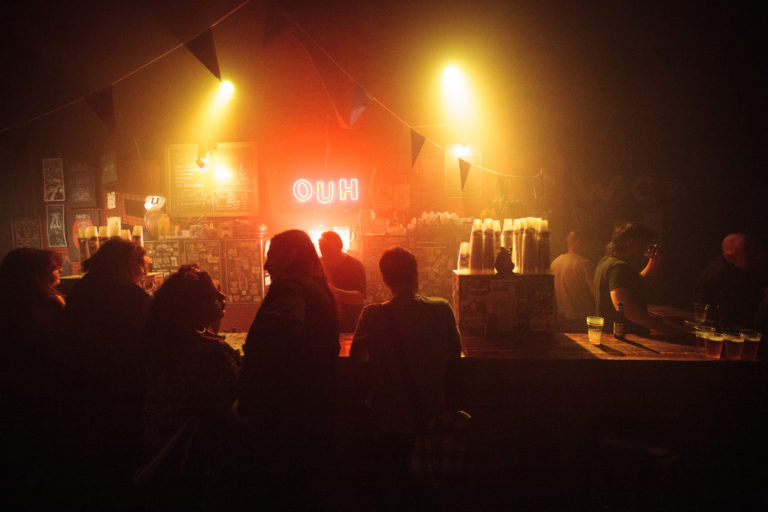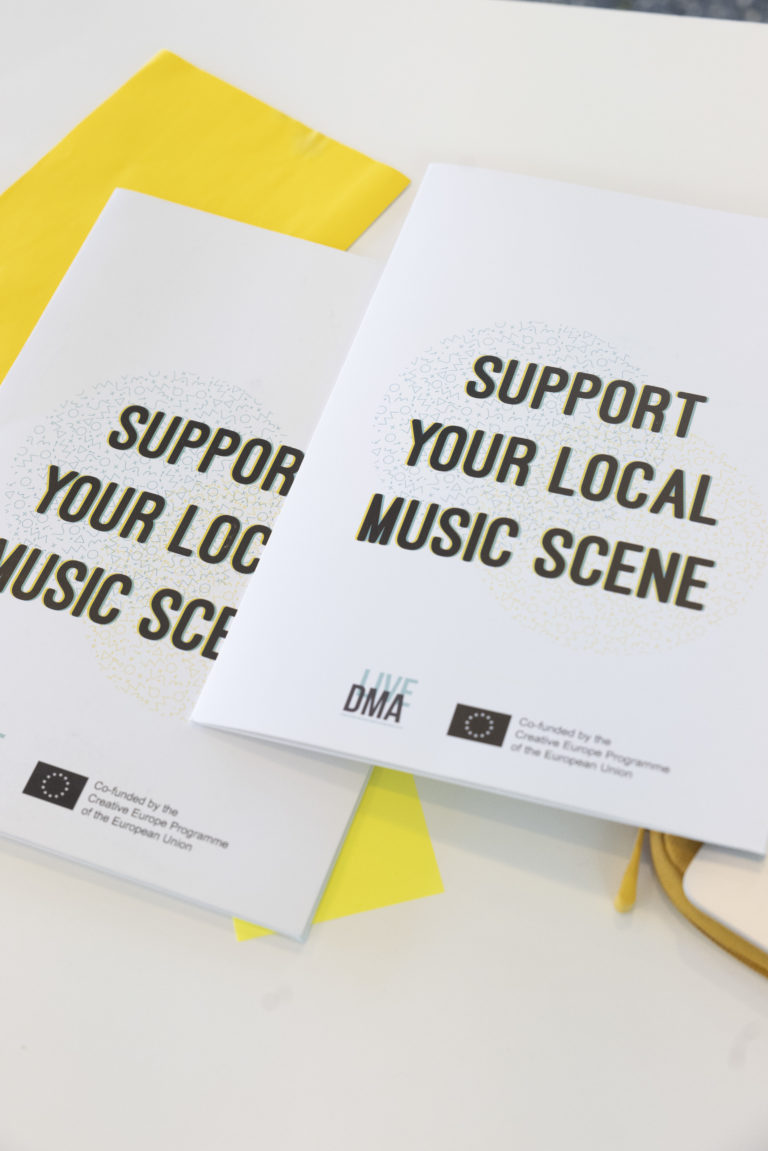Author: Matéo Vigné
This article follows up on a research commission by the European Parliamentary Research Service at the request of Benjamin Feyen, Secretary General of the Cultural Creators Friendship Group entitled "The EU's live music sector - market distortion, value chains and ecosystem diversity", and delves into the intricacies of Europe's live music sector. This comprehensive analysis explores the market dynamics, competitions, and ecosystem diversity within the industry, highlighting the significant impact of major companies on market dominance and cultural variety. It addresses the challenges faced by smaller entities and artists, emphasising the need for regulatory oversight and support for innovation and diversity to sustain Europe's musical heritage and growth.
![Lakshmi in de Patronaat [fotocredit Harold Versteeg | PhotoFresh.nl]](https://reset-network.eu/wp-content/uploads/2024/06/Lakshmi-Patronaat-Haarlem-The-Netherlands-2022-©-Harold-Versteeg-768x512.jpg)
Lakshmi performing at Patronaat, in Haarlem (Netherlands), 2022 – © Harold Versteeg
Europe's live music sector is a vital part of its cultural life and economy, with a diverse array of events ranging from small club performances to large stadium concerts. Projected to reach a value of €38 billion annually by 2030, this booming industry not only provides entertainment, but also sustains Europe's cultural heritage and drives economic growth. It employs hundreds of thousands of people and significantly contributes to local and national economies.
The industry's value chain includes artists, managers, agents, promoters, venue operators, ticketing companies, and various suppliers, each playing a crucial role. However, the sector faces challenges such as market consolidation, which limits opportunities for smaller and independent companies and artists, and financial pressures exacerbated by the COVID-19 pandemic, as highlighted in the Live DMA report. The shift to digital music streaming has also reduced traditional revenue streams. Additionally, issues like ticket scalping, inadequate artist compensation, and the need for greater diversity and inclusion continue to impact the sector.
The Influence of Major Companies
Vivendi SE, a French media conglomerate, has a global entertainment presence with key segments including Universal Music Group (UMG), Canal+ Group, Havas, Gameloft, Vivendi Village, and New Initiatives. UMG, which operates in 60 countries, is a leader in music-based entertainment, managing recorded music, publishing, and merchandising. Vivendi Village extends its reach into ticketing, managing prestigious venues such as L'Olympia in Paris. Live Nation Entertainment, a major player in the industry, represents more than 500 artists and produces 30,000 concerts worldwide. With operations in concerts, ticketing, and sponsorship & advertising, its vast network dominates live entertainment, leveraging advanced ticketing technology through Ticketmaster and creating lucrative brand marketing opportunities.
In Europe, CTS Eventim, a ticketing and event management powerhouse, sells 250 million tickets annually through innovative approaches such as dynamic pricing and mobile ticketing, attracting high-profile events and artists in a complex network such as the situation in Germany mapped by Nepthys Zwer for Reset!. Anschutz Entertainment Group (AEG) wields significant influence, orchestrating global tours and festivals, spotlighting venues such as London's O2 Arena, and events such as Coachella.
Collectively, these companies shape the live music industry through extensive networks, technological innovation, and strategic partnerships, influencing artist management, ticketing, and event promotion. This ultra dominance highlights the need for regulatory oversight to ensure fair competition and market access for smaller companies and independent players.

Magasin4 in Brussels, 2021 – © Quentin Perot
An Eye on Market Share and Dominance
The live music market is dominated by large companies that hold exclusive contracts with top artists and major venues, creating significant barriers for independent competitors. These major players often operate through local subsidiaries, maintaining regional presence while benefiting from centralised operations, impacting everything from ticket prices to event variety as illustrated by Matthieu Barreira's mappings, both of the main players in the live music value chain in France and of the owners of the European music festival scene, commissioned by SMA. Dynamic pricing models used by companies like Live Nation maximise revenue, but can lead to higher consumer prices, and the integration of primary and secondary ticket markets often inflates resale prices, limiting access for fans.
Significant merger and acquisition activity has further consolidated the market, increasing the market power of acquiring companies and raising concerns about monopolistic practices and reduced competition. The 2010 merger between Live Nation and Ticketmaster is a notable example, creating a dominant entity in event promotion and ticketing, which critics argue limits choices for consumers and artists. While consolidation can lead to efficiency gains, it also makes it harder for smaller companies to compete, potentially resulting in higher consumer prices and reduced access for artists and smaller promoters.
To address these challenges, which have been highlighted by members of the industry in comprehensive reports on cultural dynamics, such as Reset's Atlas of Independent Culture and Media, EU regulators have scrutinised merger and acquisition activity in the live music sector, enforcing antitrust laws and competition policies to prevent monopolistic practices. Ticketing platforms are crucial, with Ticketmaster leading globally due to its scale and innovations like dynamic pricing. CTS Eventim and Vivendi Ticketing also play significant roles, offering robust ticketing experiences and leveraging data for targeted marketing. The competitive landscape necessitates vigilant regulatory oversight to ensure fair competition and protect the interests of all market participants.
What Are the Challenges for Artists and Cultural Diversity?
Concentration in the live music sector undermines musical diversity by reducing lineup variety and diminishing pay for emerging artists due to escalating headliner fees. Independent music venues, pivotal for nurturing new talent, confront obstacles from urban regeneration, gentrification, and stringent noise regulations while shifting music consumption patterns pose challenges in attracting younger audiences.
Artists contend with intricate contracts, balancing revenue with fan accessibility, and navigating touring risks. High ticket prices risk alienating fans, while lower prices foster scalping. The dominance of large promoters curtails opportunities for emerging artists and stifles cultural diversity, exacerbating financial instability for many artists reliant on touring income.

Live DMA General Assembly 2023 in Le Périscope, Lyon (France)
To address these issues, the European Union has established initiatives supporting the live music industry, fostering growth, sustainability, and cultural diversity. Programs like Creative Europe provide funding for projects enhancing the circulation of European music and artists, fostering cooperation and innovation for sector competitiveness and cross-border mobility. To promote competitiveness and sustainability, the Music Moves Europe initiative enhances access to finance, supports artist development, and expands the global reach of European music. The European Agenda for Music offers a policy framework targeting finance access, copyright issues, skill development, and international cooperation to create a supportive environment for music professionals and industry growth while Liveurope supports emerging European artists by incentivising venues to book new talent, ensuring a diverse and dynamic live music scene across Europe. The European Commission's Music Moves Europe Talent Awards recognise and promote emerging European artists, providing a platform for international exposure and career advancement.
These EU programmes bolster the live music sector by addressing challenges, promoting cultural diversity, and ensuring fair competition. By fostering innovation, cooperation, and artist mobility, these initiatives contribute to Europe's cultural richness and economic prosperity.
The EU's live music sector, despite its vitality, is confronted with a number of challenges, including market concentration and ticketing issues. In order to achieve sustainable growth, it is imperative that policymakers, stakeholders, and creators adopt a unified approach. The dominance of industry giants has the effect of restricting competition, resulting in higher ticket prices and reduced accessibility. Furthermore, mergers and acquisitions have prompted regulatory scrutiny and antitrust enforcement. Furthermore, ticketing platforms are struggling to ensure fair access and combat exploitation in secondary markets. Artists face barriers in negotiating contracts and accessing opportunities amidst the dominance of major promoters, which highlights the need for initiatives to support independence, innovation, and diversity. Cooperation between stakeholders is essential to promote competition, transparency, and cultural richness in the live music sector and to ensure its continued contribution to Europe's cultural heritage and economic well-being.
In light of these worrying trends, the Reset! network, together with LiveDMA, has published a joint proposal in the Reset! Atlas of Independent Culture and Media, addressed to European institutions and policy makers, entitled “Observatory on Threats to Independence: Safeguarding Independence in Europe's Cultural and Media Sectors”.
To find out more about the realities of this European economic and cultural dynamic, this topic will be discussed on June 26th, in Brussels in ‘Independent Voices Face High Ownership Concentration: Mapping the Cultural Landscape’ - a Reset! Live Podcast.
Published on June 18th, 2024
About the author:
A freelance journalist (VICE, Konbini, Resident Advisor), former radio presenter and co-artistic director of the Aura club in Antwerp and .AREA collective in Brussels, Matéo Vigné is a music lover who grew up in Marseille with parents who told him the best anecdotes from the rave parties of the early years of electronic music. A compulsive digger and writer, he is equally interested in counter-cultures, social and environmental justice, alternative movements, and the fiercest sounds.